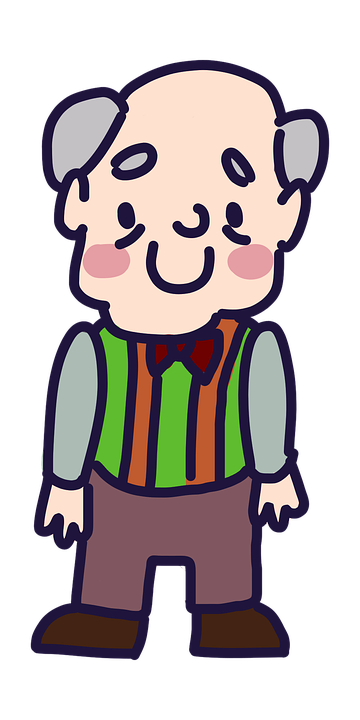

Problem of the Week
Problem E and Solution
More of Grandpa’s Math
Problem
Arden’s Grandpa tries to challenge him in his mathematics studies by creating problems for him to solve. For one problem, Grandpa said, “I am thinking of some positive integer, let’s call it \(k\), which I then multiply by the number \(1357\) and I end up with a product whose final four digits are \(9502\). Find the smallest value of \(k\) that will make this work.”


Solution
To begin with, we will show that \(k\) has four digits or less. A number with five digits, \(pqrst\) for example, can be written \(p\times 10^4 + qrst=p0000+qrst\). The digit \(p\) in the multiplier cannot affect the final four digits in the product. Therefore, the minimum \(k\) is a number with four or fewer digits.
Let the multiplier be \(abcd\) such that \(1357\times abcd\) is a number whose last four digits are \(9502\).
Then multiplying 7, the units digit of 1357, by \(d\), the units digit in \(abcd\), produces a number ending in 2. The only possible value for \(d\) is 6 since \(7\times 6=42\). (Note the possible last digits when 7 multiplies a single digit number: \(7\times 0=0,\ 7\times 1=7,\ 7\times 2=14,\ 7\times 3=21,\ 7\times 4=28,\)
\(7\times 5=35,\ 7\times 6=42,\ 7\times 7=49,\ 7\times 8=56,\ 7\times 9=63\).) Therefore the multiplier is \(abc6\).
The second last digit in the product \(9502\) is \(0\). This digit is produced by multiplying 57 from \(1357\) with \(c6\) from \(abc6\).
\(\begin{array}{ccc} &\!\! 5\!\,&\!\,7\\ \times & \!c&6\\ \hline\\[-4mm] 3 & \!4&2\\ . & \!7c&0\\ \hline\\[-4mm] . & \!0&2\\ \end{array}\)
So \(4+7c\) is a number that ends in 0. The only possible value for \(c\) is \(8\). (Refer back to the product list given above.) Therefore the multiplier is a number of the form \(ab86\). Is \(k=86\)? The product, \(1357\times 86=116\,702\), does not end in \(9502\). So \(k\) is at least a three digit number.
The third last digit in the product \(9502\) is \(5\). This digit is produced by multiplying \(357\) from \(1357\) with \(b86\) from \(ab86\).
\(\begin{array}{ccccc} &&3&\!\! 5\!\,&\!\,7\\ \times &&\!b& \!8&6\\ \hline\\[-4mm] &2&1 & \!4&2\\ 2&8&5 & \!6&0\\ .&. & \!7b&0&0\\ \hline\\[-4mm] .&. & \!5&0&2\\ \end{array}\)
So \(1+(1+5+7b)\) is a number that ends in 5 (the extra 1 comes from the “carry” from the column to the right) and it follows that \(7b\) is a number that ends in \(8\). The only possible value for \(b\) is \(4\). (Refer back to the product list given above.) Therefore the multiplier is a number of the form \(a486\). Is \(k=486\)? The product \(1357\times 486=659\,502\), which does end in \(9502\). Therefore, the smallest value of \(k\) is \(486\).